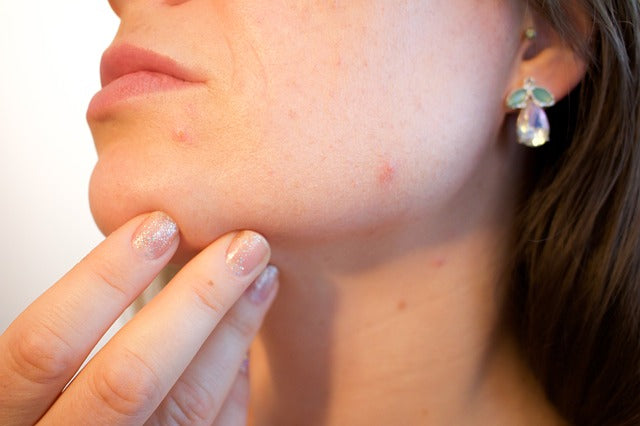Exfoliation Tips to Prevent Folliculitis: A Beautician's Guide
As a beautician, you play a crucial role in guiding clients to maintain healthy, glowing skin. One common issue that arises, often leading to discomfort and self-consciousness, is folliculitis. This condition, marked by the inflammation of hair follicles, can often be exacerbated by improper skincare practices. Hence, understanding the correct exfoliation tips to prevent folliculitis is paramount for every skincare professional.
Exfoliation is integral to maintaining clear skin, as it removes dead skin cells, prevents pore blockage, and promotes cell turnover. However, when done incorrectly, it can worsen or trigger folliculitis, a condition which is not just a cosmetic concern but also a psychological burden for many clients. Lets delve into effective techniques and precautions that can help you guide your clients in preventing this common skin issue.

Understanding Folliculitis and Its Triggers
Folliculitis is often caused by bacterial or fungal infections and can be aggravated by shaving, tight clothing, or poor hygiene. Various types of folliculitis exist, and each requires a tailored approach for prevention and treatment. To expand your knowledge, you might consider reviewing resources such as DermNet NZ's Overview on Folliculitis.
Different Types of Folliculitis
- Bacterial Folliculitis: Often caused by the Staphylococcus aureus bacterium.
- Pseudofolliculitis: Commonly known as razor bumps, particularly prevalent in people with curly hair.
- Fungal Folliculitis: Caused by yeast infections.
- Viral Folliculitis: Usually linked to viral infections such as herpes simplex.
Exfoliation Tips to Prevent Folliculitis
Here are some recommended exfoliation techniques to help prevent folliculitis:
Selecting the Right Exfoliant
Choosing the appropriate exfoliant depends on your clients skin type. For sensitive or acne-prone skin, opt for gentler chemical exfoliants. Consult studies or articles like non-comedogenic products to prevent pore blockage.
Proper Exfoliation Techniques
Educate clients on using gentle, circular motions to prevent micro-tears and irritation. Encourage exfoliation 1-2 times a week to avoid over-exfoliation, which can strip skin of natural oils and cause dryness.
Hydration and Moisturization
Emphasize the importance of post-exfoliation hydration. A suitable moisturizer helps maintain skin's barrier function, reducing the risk of folliculitis.
Regular Consultation and Assessment
Encourage clients to assess their skins response to exfoliation and adjust frequency accordingly. Regular consultations can help you address concerns and update care routines.
Additional Preventative Measures
For comprehensive care, consider these additional measures:
Shaving Techniques and Aftercare
Improper shaving can lead to or worsen folliculitis. Explore guides on shaving safely to provide clients with best practices.
Regular Cleaning of Tools and Clothing
Stress the importance of cleanliness. Encourage clients to regularly clean exfoliating tools and change clothes worn during workouts to prevent bacterial buildup.
Targeted Treatments
For clients with persistent folliculitis, guide them towards clinical interventions like antifungal treatments. The right antifungal regimen can assist in managing outbreaks effectively.
Conclusion
As professionals, providing the correct exfoliation tips to prevent folliculitis not only enhances your clients skin health but also builds trust and loyalty. Employing these detailed strategies will empower you to support your clients journey towards healthier, clearer skin.

FAQs
How often should clients exfoliate to prevent folliculitis?
For most people, 1-2 times per week is sufficient. It's crucial to monitor skin reaction and adjust accordingly.
What should clients avoid if they have sensitive skin?
Clients with sensitive skin should avoid harsh physical exfoliants and instead use gentle chemical exfoliants.
Can improper shaving contribute to folliculitis?
Yes, improper shaving can indeed exacerbate folliculitis. It is advisable to educate clients about safe shaving practices to minimize this risk.

